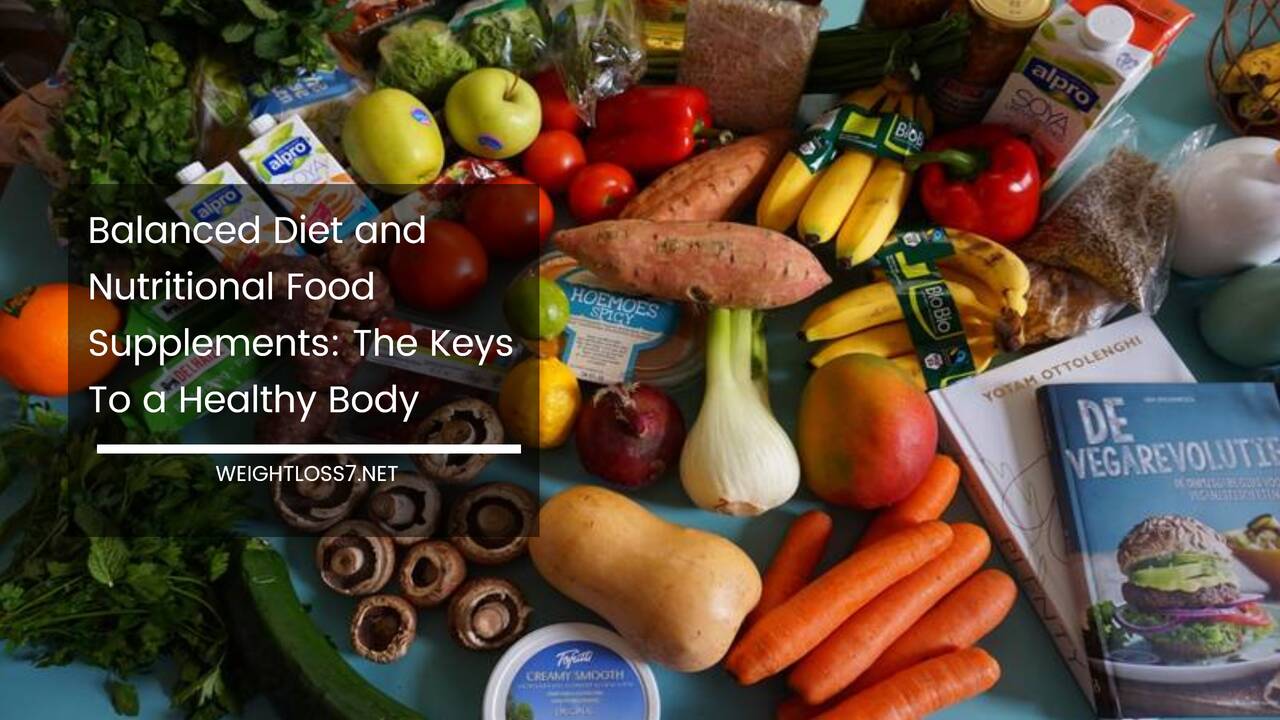Weight Loss in India: Traditional Wisdom Meets Modern Science

Weight Loss in India
Shedding Kilos the Desi Way: A Comprehensive Guide to Weight Loss in India
Weight loss is a global quest, and India presents a unique set of challenges and opportunities. With its rich culinary heritage, strong emphasis on family meals, and a rapidly modernizing lifestyle, Indians seeking to shed kilos require a nuanced approach.
This guide delves into effective weight loss strategies that consider the Indian context, incorporating traditional wisdom alongside modern evidence-based practices.
Understanding the Indian Weight Loss Landscape
Predominantly Vegetarian Diets: A significant portion of the Indian population leans towards vegetarianism, often for religious or cultural reasons. This necessitates a focus on plant-based protein sources like lentils, pulses, soy products, nuts, and seeds.
Staple Food Culture: Rice, rotis (flatbreads), and other grains form the base of most Indian meals. Learning healthy portion control and opting for whole grains like brown rice, millets, and quinoa is crucial.
Spice Up Your Life: Indian spices go beyond mere flavor enhancers. Turmeric boasts anti-inflammatory properties, cumin aids digestion, and fenugreek helps regulate blood sugar. Experiment with incorporating these spices into your meals.
Embrace Ayurveda: This ancient Indian medical system offers a holistic approach to weight loss, emphasizing balancing the body’s doshas (energies) through diet, lifestyle practices, and herbal remedies. An Ayurvedic consultation can provide personalized guidance based on your unique constitution.
Yoga’s Role in Weight Management: Yoga postures (asanas) and breathing exercises (pranayama) can be powerful tools for weight loss. Asanas improve metabolism and flexibility, while pranayama reduces stress-induced eating and promotes mindful eating habits.
Challenges and Considerations
Hidden Sugars: Many seemingly healthy Indian snacks and sweets can be laden with hidden sugars. Be wary of commercially prepared sweets and opt for homemade versions using natural sweeteners like jaggery or dates.
Social Pressures and Celebrations: Indian culture revolves around food and celebrations often involve elaborate meals. It’s important to navigate these situations mindfully. Employ portion control strategies, choose healthier options, and politely decline second or third servings if needed.
Balancing Family Meals: Family meals are a cornerstone of Indian culture. Promote healthy habits within the family unit. Encourage everyone to adopt smaller plates, choose whole grains, and incorporate more vegetables into meals.
Dietary Strategies for Sustainable Weight Loss
-
Portion Control is Paramount: Use smaller plates and bowls to avoid overeating. Focus on mindful eating, savoring each bite and chewing thoroughly to allow your body to register satiety signals.
-
Whole Grains are Your Ally: Swap refined grains like white rice and maida (refined wheat flour) for whole grains like brown rice, millets (jowar, bajra, ragi), and quinoa. These are higher in fiber, keeping you feeling fuller for longer and aiding digestion.
-
Pulse Power for Protein: Dal (lentils) and beans are the cornerstones of a vegetarian protein source in India. Explore different varieties like moong dal (mung beans), masoor dal (red lentils), and rajma (kidney beans) to create a protein powerhouse in your meals.
-
Vegetable Bonanza: Don’t underestimate the power of vegetables. Include a variety of non-starchy vegetables like broccoli, cauliflower, spinach, okra, and bottle gourd (lauki) in your meals. They are low in calories and high in essential vitamins, minerals, and fiber.
-
Healthy Fats are Essential: Don’t shy away from healthy fats like those found in nuts (almonds, walnuts), seeds (flaxseeds, chia seeds), and avocados. Include them in moderation to promote satiety, nutrient absorption, and hormonal balance.
-
Nature’s Candy – Fruits: Enjoy a variety of fruits, but be mindful of their sugar content. Berries like strawberries and blackberries, as well as apples, pears, and guavas, are great choices. Opt for whole fruits over juices to benefit from the fiber content.
-
Curb the Sugar Rush: Ditch sugary beverages like colas, processed juices, packaged drinks, and commercially prepared sweets. Opt for water, buttermilk (chaas), herbal teas like peppermint or fennel (saunf), or homemade fresh fruit coolers (sherbet) made with minimal sugar.
-
Spice Up Your Metabolism: Spices like ginger, cinnamon, black pepper, and fenugreek can elevate your meals while boosting your metabolism and aiding digestion. Explore incorporating them into curries, dals, and even beverages like buttermilk.
-
Don’t Skip Meals: Skipping meals can disrupt your metabolism and lead to overeating later. Eat regular meals and healthy snacks throughout the day to keep your blood sugar stable and prevent unhealthy cravings.
-
Stay Hydrated: Drinking plenty of water throughout the day helps flush out toxins, keeps you feeling full, improves digestion, and can even slightly elevate your metabolism. Aim for 8-10 glasses of water per day.
-
Plan Your Meals: Spontaneous decisions often lead to unhealthy choices. Plan your meals and snacks in advance to avoid unhealthy temptations. This also helps with portion control as you can pre-measure ingredients.
-
Read Food Labels: Be mindful of hidden sugars, sodium, and unhealthy fats in packaged foods. Learn to decipher food labels and choose options that align with your weight loss goals.
Sample Indian Weight Loss Meal Plan
This sample meal plan provides a guideline you can customize based on your preferences and dietary needs. Remember to consult a healthcare professional or registered dietitian for personalized advice.
Breakfast (7:00 AM):
- Option 1: 2 bowls of masala oats made with rolled oats, milk (dairy or plant-based), chopped nuts and berries.
- Option 2: Vegetable omelet made with two eggs, chopped onions, tomatoes, and spinach, served with a whole wheat roti and a glass of buttermilk.
Mid-Morning Snack (10:00 AM):
- A handful of mixed nuts and seeds (almonds, walnuts, flaxseeds) or a piece of fruit like an apple or pear.
Lunch (1:00 PM):
- Option 1: Dal Makhani (black lentil curry) with brown rice and a side salad with a light yogurt dressing.
- Option 2: Tofu stir-fry with a variety of vegetables (broccoli, cauliflower, peppers) and brown rice.
Afternoon Snack (4:00 PM):
- A cup of plain curd (yogurt) with chopped fruits (berries, apple) and a sprinkle of chia seeds.
Dinner (7:00 PM):
- Option 1: Grilled chicken/fish marinated in yogurt and spices, served with roasted vegetables (cauliflower, carrots, green beans) and a small whole wheat roti.
- Option 2: Vegetable kofta curry (vegetable dumplings made with lentils and vegetables) with quinoa.
Before Bed (Optional):
- A small cup of warm milk (dairy or plant-based) with turmeric or a glass of chamomile tea for relaxation.
Exercise for Effective Weight Loss
-
Find Activities You Enjoy: The key to sticking with an exercise routine is to make it enjoyable. Explore activities like walking, cycling, swimming, dancing (Bollywood, classical), or badminton. Find something you genuinely look forward to doing.
-
Start Slow and Gradually Increase Intensity: Don’t overwhelm yourself with an intense workout regimen you can’t sustain. Begin with moderate exercise for 30 minutes most days of the week and gradually increase the duration and intensity as your fitness improves.
-
Incorporate Traditional Activities: India has a rich heritage of physical activities. Consider yoga, brisk walking, or traditional dance forms like Bhangra or Garba. These activities can be a fun and effective way to burn calories and improve overall fitness.
-
Strength Training Matters: Don’t neglect strength training exercises. Building muscle mass can boost your metabolism and help you burn more calories even at rest. Include bodyweight exercises, free weights, or resistance bands in your routine 2-3 times a week.
Making it a Lifestyle Change
Sustainable weight loss is about creating a healthy lifestyle you can maintain over the long term. Here are some tips:
- Set Realistic Goals: Don’t aim for drastic weight loss overnight. Set small, achievable goals and celebrate your progress along the way.
- Find a Support System: Having a friend, family member, or joining a weight loss support group can provide encouragement and motivation.
- Get Enough Sleep: Aim for 7-8 hours of quality sleep each night. Sleep deprivation can disrupt hormones that regulate appetite and metabolism.
- Manage Stress: Chronic stress can lead to unhealthy food choices. Practice stress management techniques like yoga, meditation, or deep breathing exercises.
- Make Gradual Changes: Don’t try to overhaul your entire lifestyle at once. Introduce healthy changes gradually to make them sustainable in the long run.
The Ayurvedic Approach to Weight Loss
Ayurveda offers a personalized approach to weight loss based on your individual dosha (body constitution). Here’s a brief overview:
- Vata Dosha: People with Vata dosha tend to have light frames and fast metabolisms. They may benefit from a diet that is grounding and warming, such as cooked vegetables, warm soups, and healthy fats.
- Pitta Dosha: Individuals with Pitta dosha often have a fiery metabolism and can be prone to acidity. A cooling and Pitta-pacifying diet is recommended, featuring vegetables like cucumber, leafy greens, and bitter gourd (karela). Sweet fruits and healthy fats like coconut oil can also be beneficial.
- Kapha Dosha: Kapha-dominant individuals tend to have a slower metabolism and may struggle with weight loss. A Kapha-balancing diet emphasizes light, easily digestible foods like vegetables, lentils, and spices that stimulate digestion (ginger, cumin). Limiting sweet and heavy foods like rice and sweets is crucial.
Remember, consulting an Ayurvedic practitioner can provide a more in-depth assessment and personalized recommendations based on your unique needs.
Final Word
Weight loss in India is a journey that can be both challenging and rewarding. By incorporating traditional wisdom with modern evidence-based practices, you can create a sustainable weight loss plan that aligns with your cultural background and preferences.
Remember, the key is to focus on healthy habits, mindful eating, and enjoyable physical activity. With dedication and the right approach, you can achieve your weight loss goals and embrace a healthier, happier you.
Additional Tips
-
Explore Local and Seasonal Produce: Take advantage of India’s diverse and vibrant markets. Incorporate fresh, seasonal fruits and vegetables into your meals for a burst of flavor, essential nutrients, and affordability.
-
Cook More at Home: Preparing meals at home allows you to control ingredients and portion sizes. Experiment with healthy Indian recipes that are both delicious and nutritious.
-
Make Healthy Swaps: Instead of sugary drinks, try coconut water or homemade lassi (yogurt drink) with minimal added sugar. Opt for brown rice instead of white rice, and choose baked or grilled protein options over fried versions.
-
Listen to Your Body: Pay attention to your body’s hunger and fullness cues. Eat slowly and savor your food. Stop eating when you feel comfortably full, not stuffed.
-
Celebrate Non-Scale Victories: Weight loss is not just about the numbers on the scale. Celebrate your progress in terms of increased energy levels, improved sleep, better fitting clothes, and a more positive body image.
Remember, this guide serves as a starting point. It’s advisable to consult a healthcare professional or registered dietitian for personalized advice tailored to your specific needs and health conditions.
With the right approach and a commitment to a healthy lifestyle, you can achieve your weight loss goals and embark on a journey towards a healthier, happier you.

















